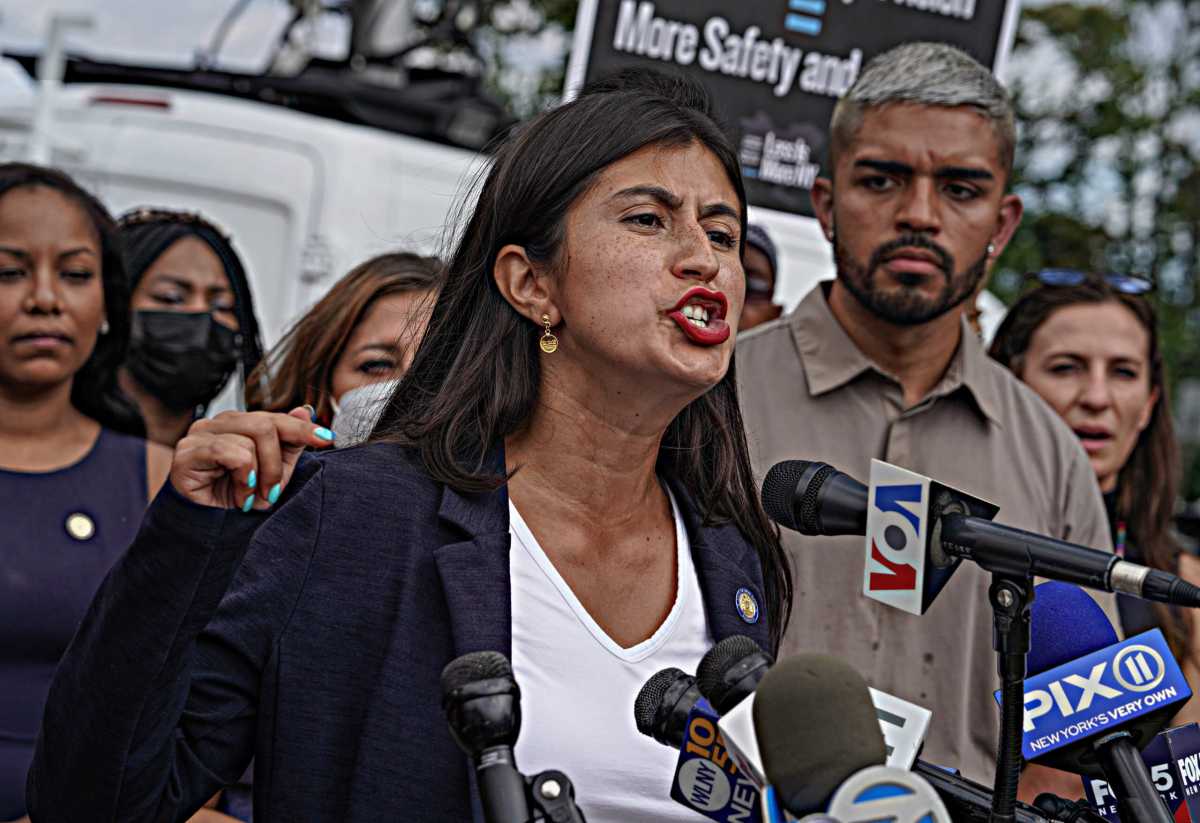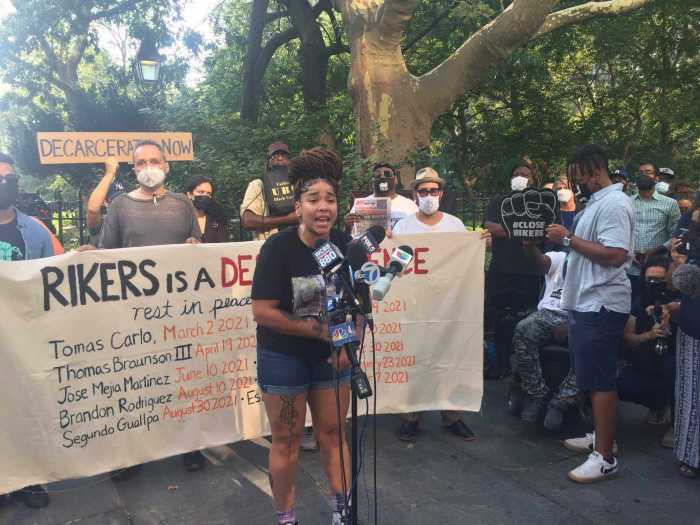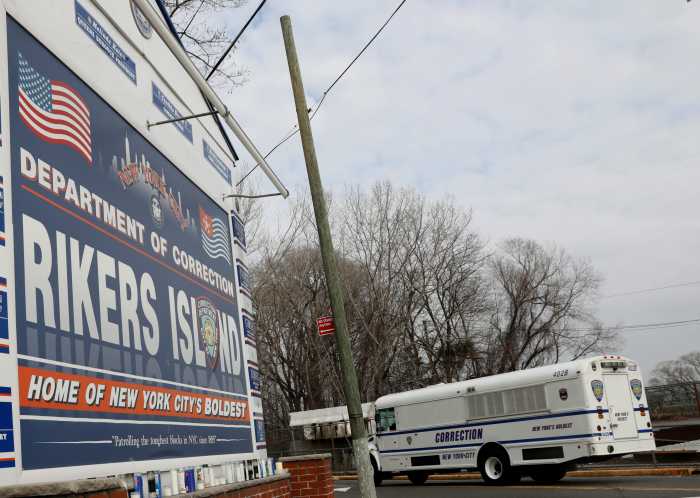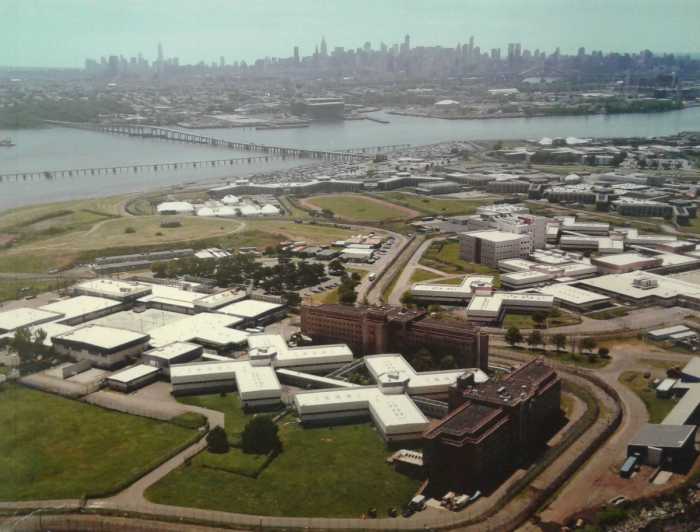We can’t talk about bail reform without talking about the crisis at Rikers Island and dozens of other local jails across the state.
People lying on the floor, packed in tight together. Denied the chance to fight the charges against them while keeping their jobs or schooling, even as a surging rate of death behind bars climbed even higher. Denied medical care, even as their broken bones throb with pain. Denied mental health support, even as their symptoms overwhelm them and, in desperation, they attempt to hang themselves. This is just part of what I saw when I visited people in pre-trial detention on Rikers Island. This is what most of my colleagues have not seen, even as they are confronted with calls to replace bail reform laws with policies even more regressive than what New York had in place before reform.
The horrid facilities I saw were haunted by many ghosts, including that of Kalief Browder. At age 16, Kalief was falsely accused of stealing a backpack. The judge set bail beyond what his family could afford, and he was caged at Rikers. For three years, he languished behind bars – two of them in solitary confinement – as a teenager. It’s an open secret that prosecutors use pre-trial jailing to coerce guilty pleas, and often it works, but Kalief held on. Finally, when prosecutors admitted they had no case, the charges were dropped, but they offered nothing to address the trauma that young Kalief had suffered. Two years later, he died by suicide.
Unfortunately, Governor Hochul has a new plan to condemn more people to Kalief’s fate, expanding pre-trial jailing and allowing prosecutors to hide evidence. We must reject it.
Rather than improving public safety, jail itself is a public safety hazard to our communities. Just one night in jail is enough for a person to suffer the destabilization of lost housing, work, or child custody, regardless of case outcomes. And the data is clear that those detained for longer stretches are effectively coerced to plead guilty, often in exchange for release.
When tabloids trot out a New Yorker with a long history of low-level arrests, their RAP sheets always date back to before bail reform. Whatever your political leanings, we should agree that cycling low-income people in and out of jail with no support for mental health, substance use, housing or other needs does not work to prevent violence or make us safer. (Also, contrary to misinformation, judges can still set bail in many cases involving repeat arrests, but sometimes make case-by-case decisions not to do so.)
Still, we need urgent and sustained action to improve safety. The chaos of COVID-19 has triggered an uptick in crime across the country. Many of the loudest voices blame progressive criminal justice reforms, but 8 of the 10 states with the highest murder rates are red states. Republican-led cities of similar size had more murders than their Democratic counterparts, and murder rates were far higher in smaller Republican-led cities like Anchorage and Lubbock. Moreover, under New York’s bail reform, judges retained discretion to set bail in gun cases, so changing bail laws won’t change gun enforcement.
In fact, a new report from New York City Comptroller Brad Lander evaluates law enforcement data and finds that, contrary to what many politicians have said in the press, bail reform definitively did not cause the recent increase in shootings we’re all grappling with.
Partisan politics and bail reform smears aside, blaming the wrong cause distracts from real and urgent solutions. Let’s scale them up.
That’s why we need to pass my legislation, the Treatment Not Jail Act, to expand access to mental health and drug treatment courts, which connect people with proven treatment options rather than simply cycling them through jail. This law would empower judges to offer court-mandated treatment to people with mental health and substance use challenges as an alternative to incarceration. These structured diversion programs already exist in many counties throughout the state, and in those places have proven highly effective at reducing recidivisim and making our communities safer, while saving money. The Treatment Not Jail Act would simply expand on what works, and open access to these treatment courts to connect thousands of New Yorkers with underlying mental health and substance use issues to the treatment that they need, rather than sending them to jail.
The Senate and Assembly one-house budget resolutions make the right call: They follow facts, not fear and invest in needed community-based services and supports. Together, we have proposed millions of dollars for pretrial services, gun violence prevention, community safety and restorative justice programs. We are also fighting for universal child care, expanded access to health coverage (including mental health coverage), and robust education funding, all of which are key to vibrant and safe communities. Some of these investments will pay off overnight while others will require more time and effort, but increasing pre-trial jailing will never bring about the community safety gains that we all want.
Our communities deserve true public safety and it’s on us to deliver.



































